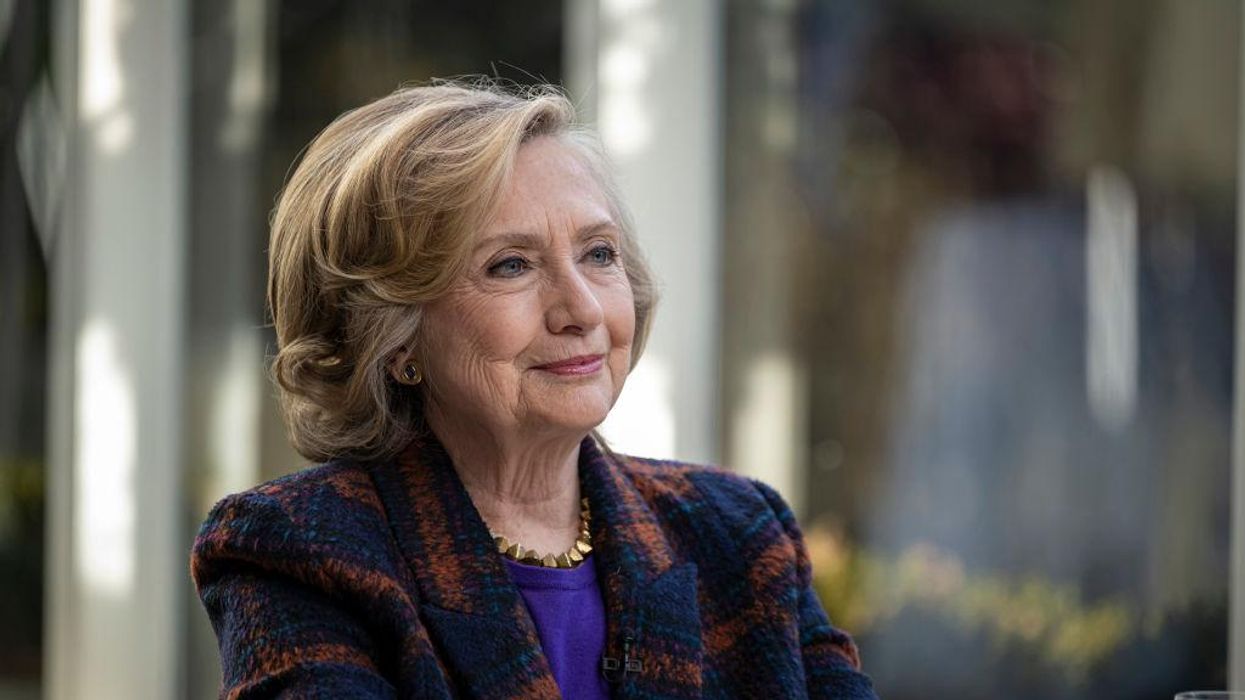
Mike Smith/NBC/NBCU Photo Bank via Getty Images

U.S. special counsel John Durham won a legal victory this week when a judge presiding over his case against cybersecurity lawyer Michael Sussmann ruled that some Hillary Clinton-Fusion GPS documents previously kept secret under attorney-client privilege assertions can be revealed in court.
The documents, Durham argued, are crucial in building his case against Sussmann, a former Perkins Coie partner accused of lying to the FBI when presenting alleged evidence connecting then-presidential candidate Donald Trump's campaign to the Kremlin-connected Alfa Bank.
At the time Sussmann presented the evidence to FBI lawyer James Baker, he claimed that he was acting as a private citizen and not on behalf of any client. But billing records later showed that Sussmann had charged the time to Clinton's campaign.
Durham is seeking to prove that Sussmann was indeed secretly acting on behalf of the Democratic Party and the Clinton campaign when he fabricated allegations against the Trump campaign, alleging collusion with Russia.
In court, Durham argued that the CIA determined Sussmann's purported evidence against Trump was not "technically plausible," did not "withstand technical scrutiny," and appeared to be "user-created and not machine/tool generated."
The Washington Examiner reported Wednesday that Judge Christopher Cooper agreed to grant Durham's motion, arguing he did not believe it was breaking attorney-client privilege for him to review the documents in question in an "in camera" setting, or away from the public and the media.
Legal blogger Techno Fog appeared to confirm the ruling, uploading purported court documents.
The documents reportedly contain redacted communications between the Democratic National Committee, Hillary for America, the Fusion GPS research company, and Perkins Coie law firm, where Sussman worked.
Key to Cooper's ruling was the difference between hiring a firm lawyer to conduct "fact-checking" versus hiring it to do "opposition research," the Examiner reported.
Hillary for America, the DNC, and Perkins Coie have claimed that the records should be kept sealed under attorney-client privilege since they hired Fusion GPS to simply provide "legal services." But Durham has argued that Fusion GPS' work went far beyond legal services to engage in out-and-out opposition research against the Trump campaign.
The court is set to review only 38 of 1,500 documents over which the defendants have asserted privilege, but the prosecution said others may be requested for introduction in future trials.
The ruling clearly rankled the defendants' legal teams.
Clinton campaign lawyer Robert Trout argued the government displayed an "erroneously cramped view of privilege," calling it a "false choice" to say something is either opposition research or covered by privilege.
Sussmann's lawyer, Sean Berkowitz, lamented that "the government charged a case with attorneys and privilege all over the place" and claimed the judge’s ruling could have a "ripple effect" that may end up calling "thousands of documents into question."